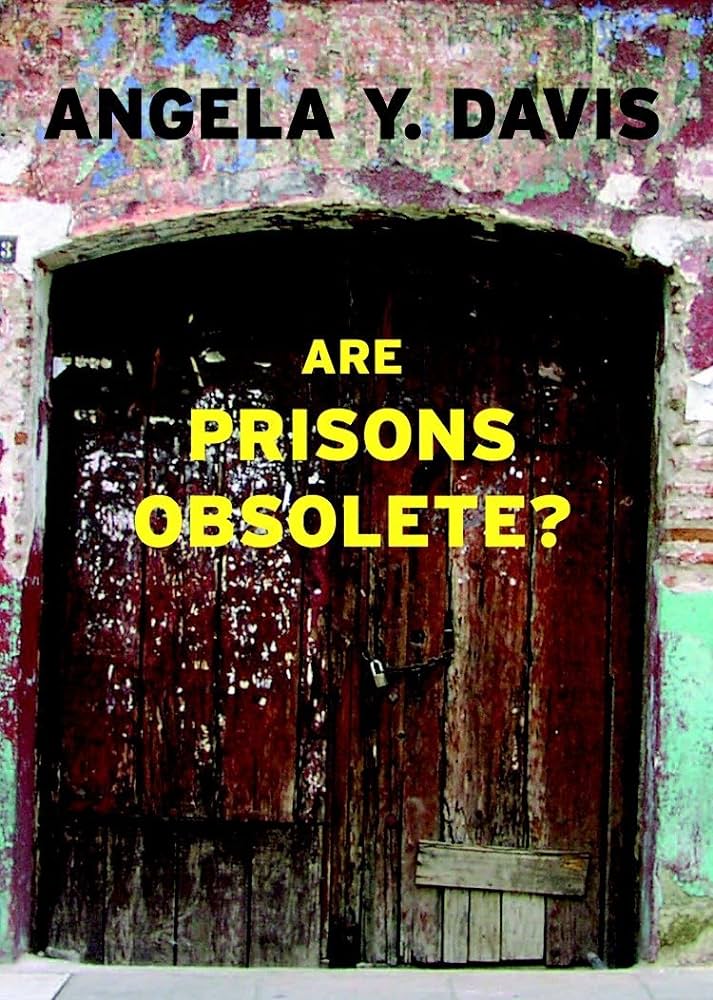Home / Books / Non-Fiction /

In this well-researched and well-structured book, Angela Y. Davis offers the reader detailed contextual backgrounds and historical aspects of the modern prison industrial complex. In its title, Davis poses the question “Are prisons obsolete?” And then begins to dismantle all your preconceived notions of “crime & punishment” that you have taken for granted all your life.
I admit that I have read a few articles on this particular topic a few years ago, and so I do have some “limited” knowledge of this subject, as well as some awareness of the immense roles that racism and capitalism have played in the creation of modern prison systems. That said, Davis gives much more insight into these complex issues.
The book discusses the context of the creation of the modern prison system by exploring the origins of the idea of “crime & punishment”, the radical increase in the number of prisons in just a decade, the radical increase in the rate of prisoners incarcerated, the role that institutional racism played in the creation and rapid growth of the prison system, the role that sexism played in the differential treatment of male and female inmates (especially with regard to sexual assault as a form of punishment), the massive role that capitalism plays in the continued growth of modern supermax prisons in the phenomenon known as “the prison industrial complex” and its relation to other public and private institutions and companies, and finally in offering a not-so-simple “alternative” to the prison system.
With regard to the original role or intention of a prison as a reform institution, Davis makes the argument that the prison system fails its prisoners in that “original” task, but rather systematically exploits its prisoners for absolute profit, and in a very similar way that slavery exploited human beings for profit, the prison system is also in its essence a racist institution.
Davis also points out that although most people view the abolition of the prison system as an insane idea, the abolition of slavery was also seen as insane until it didn’t seem so crazy anymore. Most people will immediately think of child abusers, rapists, and serial killers when they think of prisons. But when you read this book, you will understand that of the 2+ million incarcerated people, these serious criminals don’t make up the majority of prisoners, in fact, the majority of prisoners are people of color for crimes that can be better taken care of using other methods of true reform to ultimately place reformed criminals back into “free” society.
Although I believe this book is a must-read, it’s important to point out that Davis mostly discusses the issues of the current prison system and doesn’t spend as much time offering an in-depth solution or alternative. However, she does give us a general idea of a proposed solution in the final chapter, where she discusses the major reforms needed in social, civil, justice, and other institutions in our communities to abolish the current prison systems.